2024-11-21
The "WTA·Xianghu Dialogue 2024" was recently held in Sanya, Hainan, where global tourism leaders gathered to share insights on the topic "Industry-Education Integration and Global Partnerships in Tourism Education".

Moderator:
Dr. WANG Kunxin, Principal Researcher of World Tourism Alliance Research
Panelists:
Dr. Wayne CROSBlE, Director of lnternational and Business Development of William Angliss Institute
Dr. QIU Hangin, Dean and Distinguished Professor of the International School of Cultural Tourism, Hangzhou City University
Dr. JIANG Hong, Dean of Hospitality Management School of Shanghai Business School
Dr. WANG Yanhong, Secretary of the Party Committee of Zhengzhou Tourism College
Dr. ZHAO Xiaohong, Principal of Sichuan Institute of Tourism
Dr. FU Jihong, Vice President of Yunnan Tourism College
Here is a transcript of the discussion:
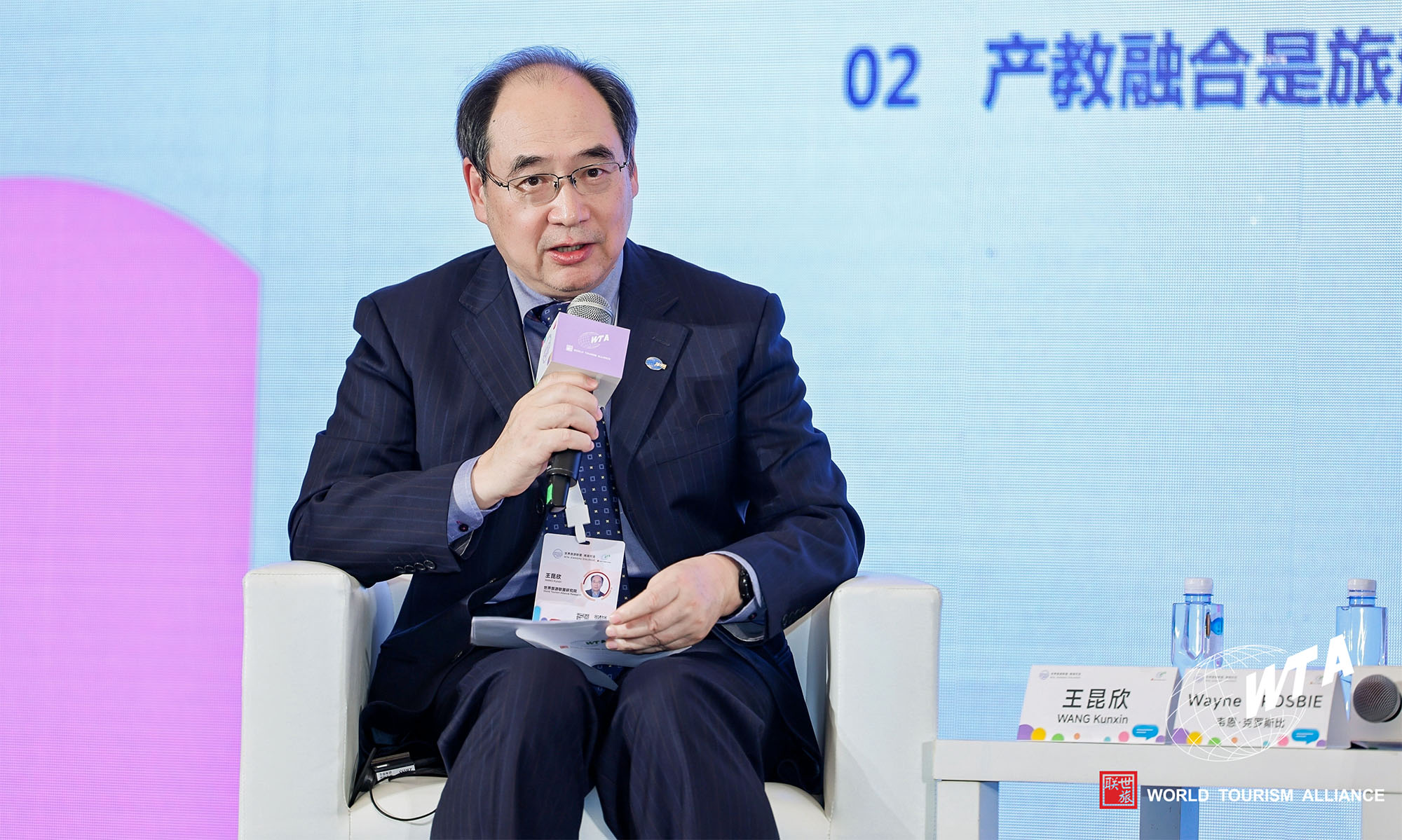
Moderator: Internationalization is a defining feature of tourism education. History and reality both demonstrate that countries with advanced tourism industries also tend to have leading tourism education systems. Achieving internationalization in tourism education hinges on broadening international perspectives and aligning with international standards. Fundamentally, tourism education is deeply rooted in the development of the tourism industry. Without the industry, there would be no tourism education, and without advancements in education, China’s tourism industry could not have achieved its current accomplishments. Therefore, aligning education with the industry is crucial. Education detached from the industry would yield suboptimal results. Looking ahead, education technology will undoubtedly play a key role in advancing the sector. Let’s discuss how internationalization can further shape tourism education.

Dr. Wayne CROSBIE: The William Angliss Institute in Australia has a long history and has implemented numerous international partnership programs. We see these initiatives as an integral part of our industry collaboration efforts, supporting the professional development of our institution. At our Melbourne campus, more than 2,000 students from over 60 countries come to study hospitality and tourism-related disciplines each year. We work closely with local education departments and governments to provide global students with unique learning opportunities. Our faculty members are also sent to partner schools, helping students gain international experience. We actively seek higher-quality collaborations with industry, academia, and research institutions. In recent years, we have developed long-term partnerships with Chinese institutions, such as Zhejiang Tourism College. Through these educational programs, students benefit significantly, especially in structured teaching approaches, which equip graduates with valuable experience and a solid foundation for entering the workforce.
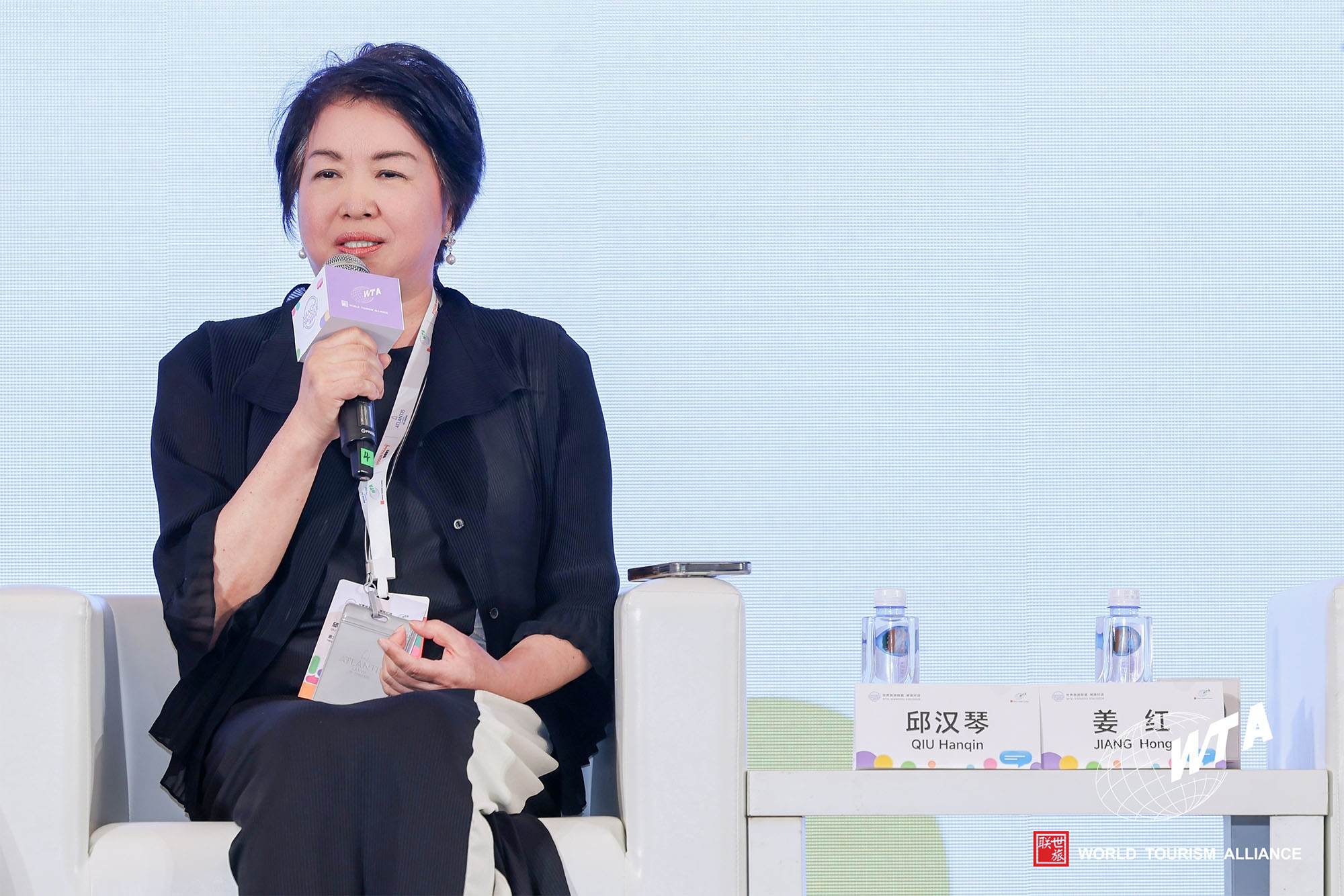
Dr. QIU Hanqin: Three years ago, I joined Hangzhou City University to establish the International School of Cultural Tourism. Since June 1, 2022, when the school was officially launched, we have prioritized internationalization as part of our mission. 1. Curriculum Internationalization: Backed by full funding from the Hangzhou municipal government, we consider the entire city as an extension of our classroom. We’ve introduced a series of general education courses focused on Hangzhou to integrate global elements into our curriculum. 2. Student Internationalization: We attract international students, integrate international platforms, and offer resources like English-language journals to foster two-way global learning and exchanges. 3. Faculty Internationalization: We actively promote outbound programs for courses and faculty members. Collaborating with industry partners in their international ventures, we aim to extend China’s educational and tourism brands globally.
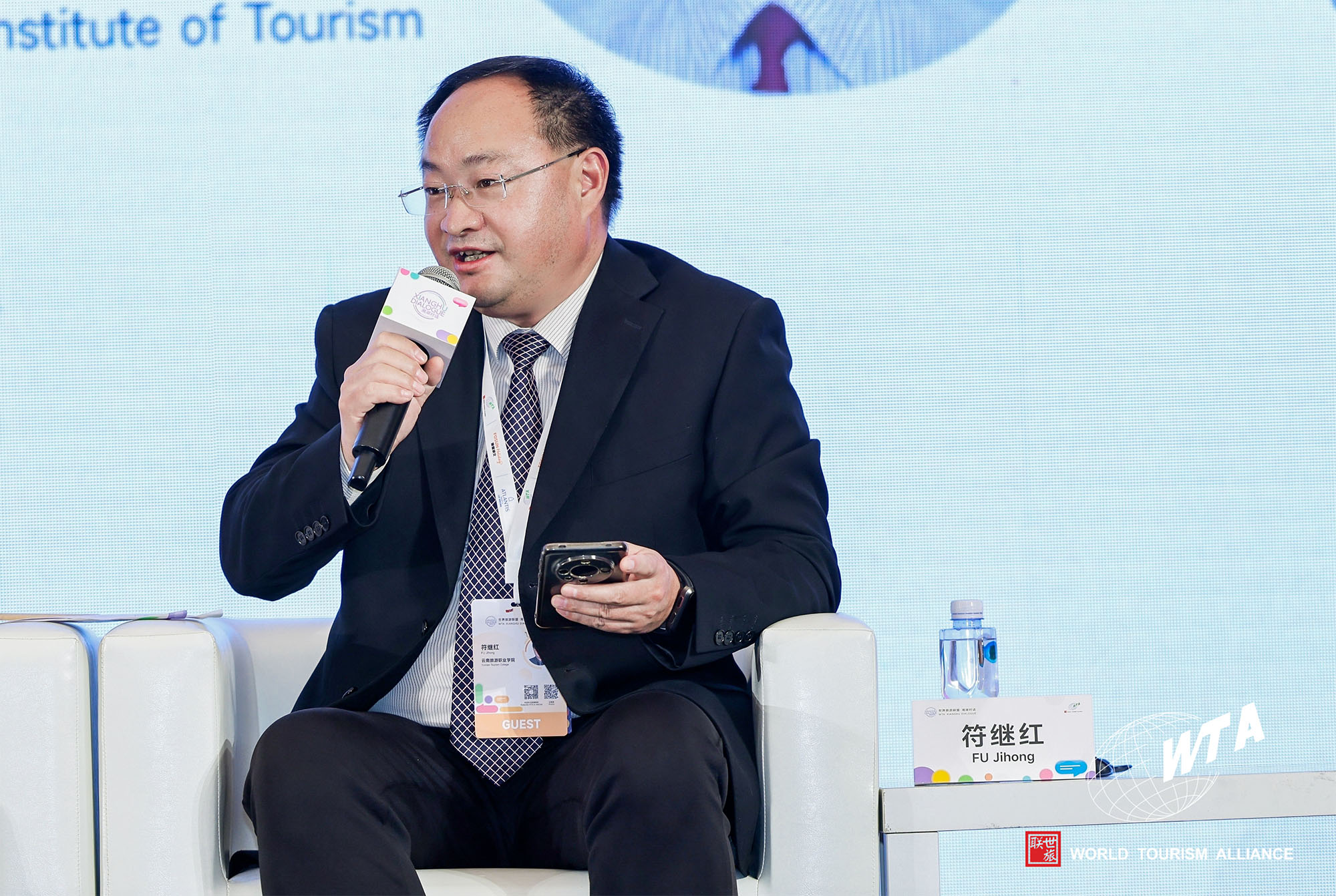
Dr. FU Jihong: Yunnan boasts unique geographical advantages. Under national strategic plan, Yunnan is transitioning from being a peripheral region to becoming a frontier of reform and opening-up. Considering these major strategic opportunities, we have adopted practical approaches to fulfill our internationalization goals. 1. Active Overseas Training: Leveraging the China-ASEAN Tourism Talent Education and Training Base, we conduct international training for 12 countries. Many high-ranking tourism officials from ASEAN countries participate in these programs, which focus on China’s tourism industry policies, development management, and market operations. Our college was recognized among the "Top 50 Most Influential Asia-Pacific Vocational Institutions in 2018". 2. Enhancing International Exchange: To date, minister-level officials from five countries have visited our institution. In 2021, our college organized the Tourism Education Forum for the China-South Asia Exposition. 3. Promoting Small-Language Study Abroad Programs: Given our school’s context, we have established partnerships with institutions such as Chiang Mai University and Christian University, as well as universities in South Korea and other regions. Through student exchange programs, we are enhancing our capacity for international cooperation.
Moderator: Let’s focus on industry-education integration. What are the key priorities and challenges in advancing this approach in tourism education?
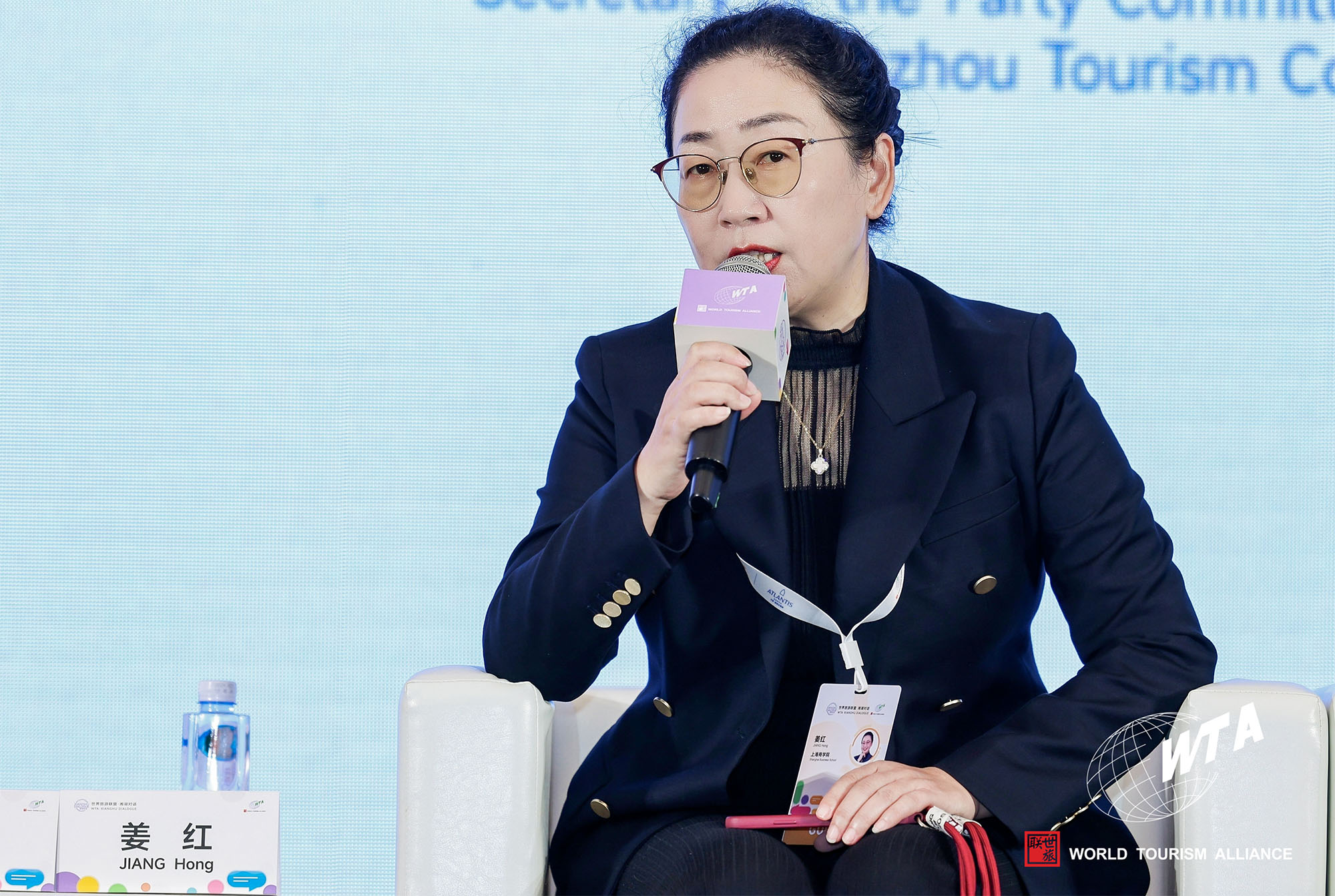
Dr. JIANG Hong: Industry-education integration is a broad and in-depth topic, encompassing city-level and industry-level collaborative frameworks. Our goal is not just to establish mechanisms for cooperation but to ensure effective implementation on the ground. We have developed a five-year collaboration plan with institutional support to secure funding. However, true integration requires more than superficial actions, such as signing framework agreements or offering general career guidance. We require certified regional directors or higher-level personnel to conduct classroom sessions, with special arrangements for master craftsmen and cultural heritage experts, to provide students with meaningful growth opportunities. The persistent workforce challenges faced by many enterprises stem from a mismatch between job requirements and educational outcomes. The core of industry-education integration is fostering high-quality talent development mechanisms that ultimately enhance the tourism industry. Collaboration must be reciprocal and mutually beneficial for both education and industry.
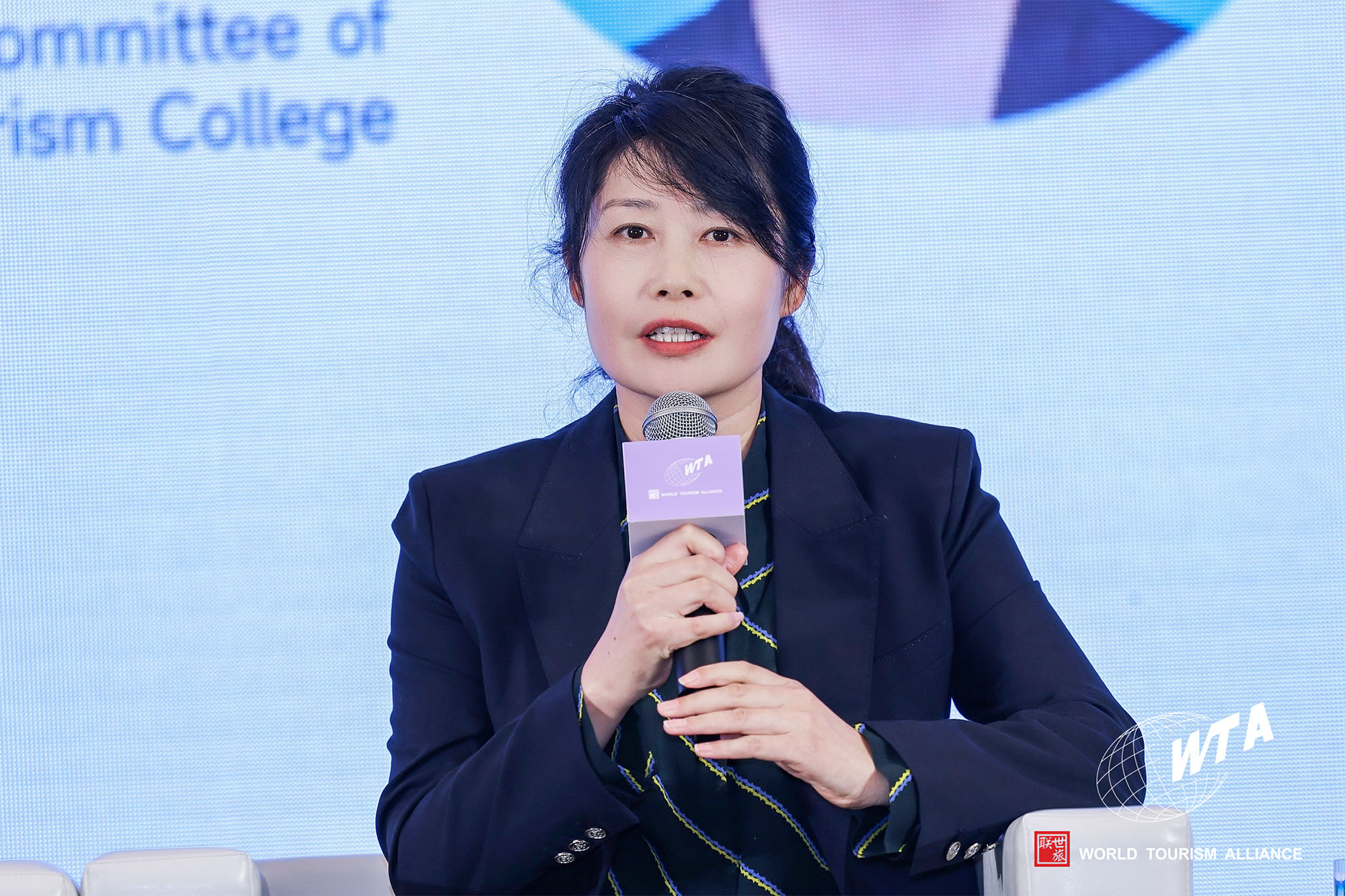
Dr. WANG Yanhong: As the first vocational college in Henan Province focused on cultural tourism, Zhengzhou Tourism College has a strong foundation in tourism education. Given the booming cultural and tourism industry in Henan, we’ve actively explored industry-education integration through several key initiatives. 1. Developing Industry-Focused Professional Systems: Henan’s "7+28+N" key industry chains have guided the development of our professional clusters. We’ve digitized 14 traditional programs, eliminated five that no longer meet industry needs. Furthermore, we have collaborated with enterprises to create nearly 300 courses and established teacher workstations and open training bases tailored to industry standards and job requirements. 2. Supporting Regional Cultural Tourism Development: We’ve established several comprehensive service platforms and undertaken over 120 policy consultation projects. Currently, we are preparing to launch the Henan Tourism Standards Technical Committee to provide professional support for cultural tourism standardization efforts. 3. Supporting County-Level Tourism: With Henan’s rich cultural and tourism resources, we’ve implemented a “One County, One Brand” strategy. Tailored programs in Lin County and Xin County include customized talent development plans and specialized training for multilingual tour guides, leveraging the 144-hour visa-free policy. These initiatives highlight our strengths and responsibilities as Henan’s largest tourism vocational college.
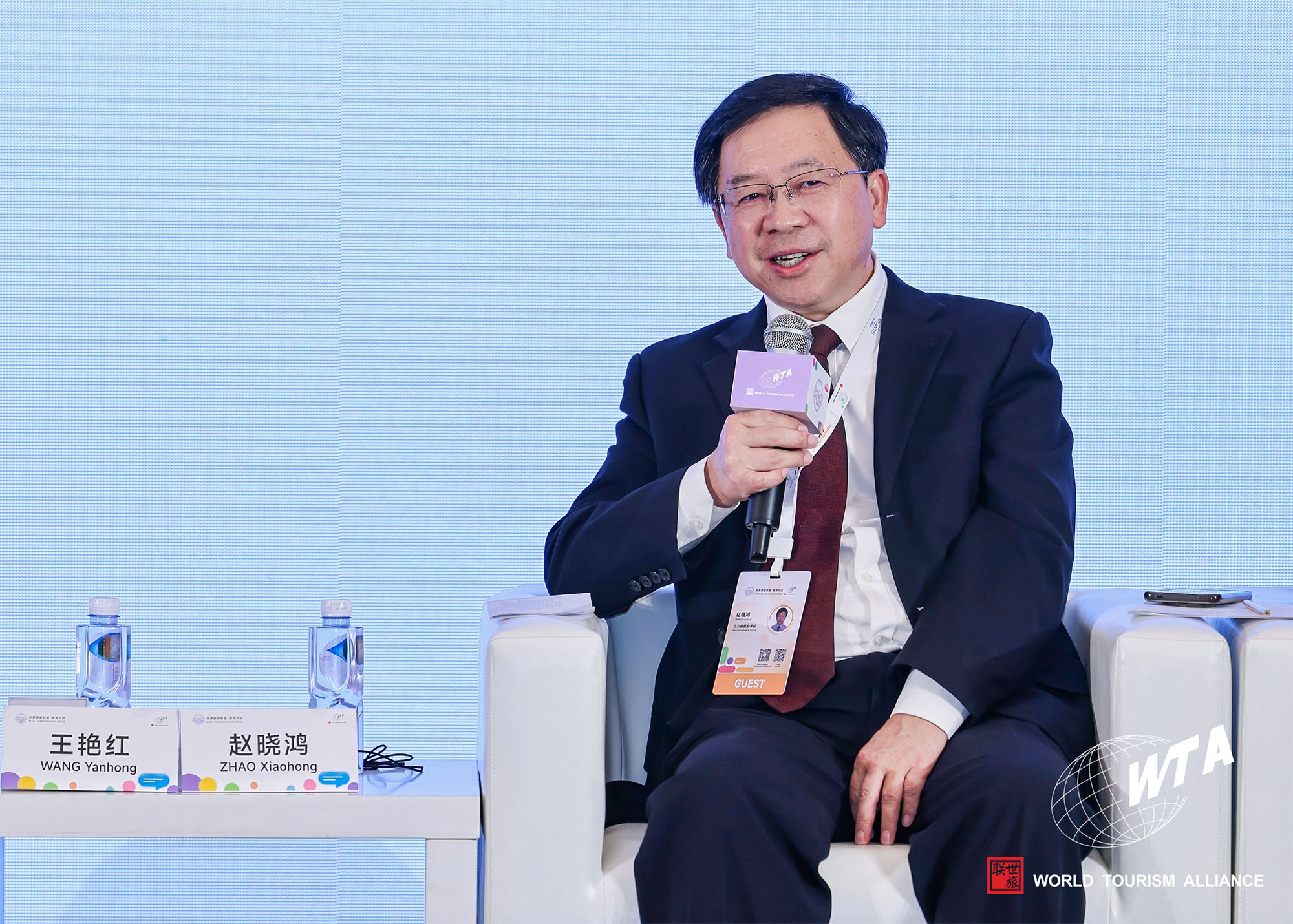
Dr. ZHAO Xiaohong: As one of China’s earliest vocational institutions, Sichuan Institute of Tourism has prioritized industry-education integration for 45 years. Our approach involves embedding academic programs within industrial chains, immersing faculty in industry practices, and training students within real-world operations: 1. Collaborating with local governments: Instead of signing agreements directly with enterprises, we establish partnerships with municipal and county governments. This simplifies processes and naturally connects us with local enterprises. For example, our school initiated the “Discover Emei Martial Arts” project with financial and logistical support from the local government of Emeishan City, where our school is located, promoting Chinese cultural symbols like Kung Fu and Emei martial arts internationally. Similar projects like "Discover Qingcheng Martial Arts" and "Discover Wudang Martial Arts" are planned. 2. Engaging deeply with enterprises: We manage and operate projects for multiple businesses, enabling faculty and students to immerse themselves in practical experiences. A high-end homestay we manage in collaboration with Qingyun Mountain, for instance, ranked second among thousands of homestays in Sichuan within just six months. 3. Partnering with industry associations: As a secondary vocational school, our growth relies on deepening partnerships with industry entities. Our institution now offers China’s most comprehensive vocational education system, centered around three major disciplines: hotel management, tourism management, and cultural innovation management. This alignment fosters deeper integration between education and industry.
Moderator: Let’s conclude with a single sentence summarizing your vision for the future of international industry-education integration.
Dr. Wayne CROSBIE: The future of the tourism education will be defined by effective industry-education integration.
Dr. QIU Hanqin: Integration of government, industry, academia, research and application is vital, as is promoting Chinese characteristics globally.
Dr. JIANG Hong: By tapping into the depth of Chinese civilization and embracing the rise of information technology, we aim to leverage intellectual leadership, cultural unity, and the power to inspire values in tourism education.
Dr. WANG Yanhong: With strong policies, market demand, and passionate partnerships, the future looks bright for education-industry collaboration.
Dr. ZHAO Xiaohong: By utilizing platforms from central and state-owned enterprises, we can address risks and streamline channels for global outreach, ensuring the sustainable growth of vocational tourism education.
Dr. FU Jihong: While the road may be long and challenging, persistence leads to success. Vocational education must actively serve national strategies, enrich the cultural tourism landscape, drive deeper industry-education integration, and take on greater roles in international collaboration.